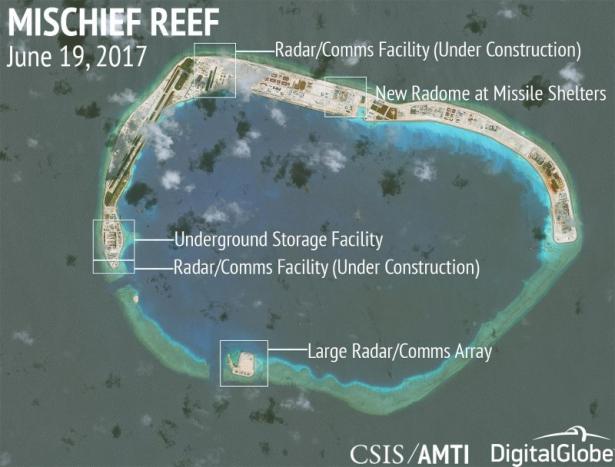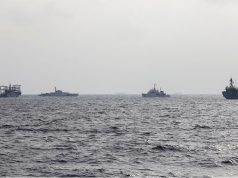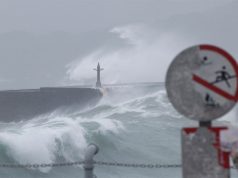
BEIJING — China maintained it will not militarize the South China Sea despite persistent reports it has been constructing military structures in the disputed territory.
Yao Wen, deputy director general for policy planning of the Chinese Ministry of Foreign Affairs’ Asian department, gave this assurance on Monday in an interview with Asian journalists covering the 19th Communist Party of China National Congress.
“China will never seek militarization of South China Sea,” Yao replied when asked if China could make a categorical statement that it would not use its military to assert claims in the disputed sea lanes.
He did admit that structures have been constructed on reclaimed reefs and islands “within China’s sovereignty.”
“Yes indeed, we have some construction works. There are some projects that are actually public structures, especially the lighthouse and hospitals … we believe the neighboring countries will benefit from in the future,” he said.
Yao reiterated China’s call to countries not directly involved in the territorial dispute to leave the resolution to the claimant countries, which include the Philippines, Vietnam, Malaysia and Brunei.
He said stationing military vessels and aircraft near the disputed territory “is highly dangerous” as it could lead to misjudgment.
“We are worried about the so-called free navigation activities of non-relevant countries that come as far as near five to six nautical miles of the reefs where our staff are stationed,” Yao said, apparently referring to such operations by the United States and its allies in the region.
Yao said territorial disputes, particularly those surrounding China’s nine-dash line and historical rights claims, should be resolved peacefully through dialogues and negotiations among the affected countries.
China-Philippines relations hit a snag after The Hague-based Permanent Court of Arbitration ruled in favor of the Philippines’ 2013 arbitration case to contest China’s nine-dash line claims.
But President Rodrigo Duterte, who has chosen to seek closer relations with China, has set aside the verdict.
“The disputes in the south China are always there but the important thing is how to manage those disputes and china and the Philippines have done groundbreaking work in this respect. The basic position of China is to resolve the differences for common development,” Yao said.









